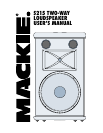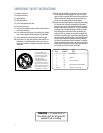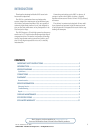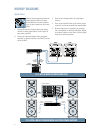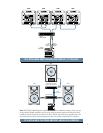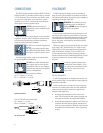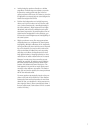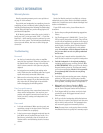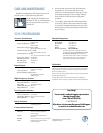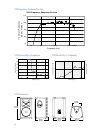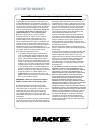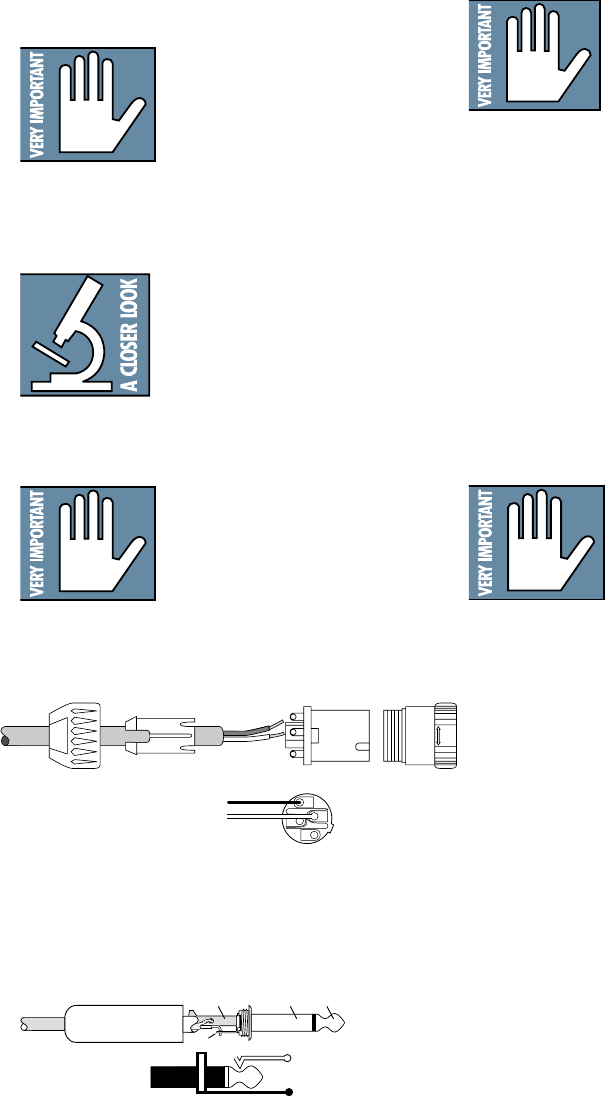
6
CONNECTIONS
The S215 has two connectors labeled IN/OUT. One is a
Neutrik Speakon™ connector and the other is a female
1/4" TS connector. These connectors are wired in paral-
lel, and can be used either as an input from a power
amplifi er, or as a “thru” connection for connecting the
input signal to another speaker’s input.
NEVER connect more than one
output from a power amplifi er to the
S215 inputs.
Keep in mind, when connecting two or more speakers
in parallel using the “thru” connections, that you want
to be sure not to go below the minimum impedance
requirements for your power amplifi er.
The S215 has a nominal impedance of
8 ohms.
Two S215s in parallel equals 4 ohms.
Three S215s in parallel equals 2.7 ohms.
Four S215s in parallel equals 2 ohms.
Use high-quality speaker cable as recommended by
the power amplifi er manufacturer.
DO NOT use coaxial shielded cable
like a guitar cord to make speaker
connections. They are not designed
to handle the high currents required
to drive a loudspeaker.
The Speakon connector is wired as follows:
Pin 1+ = Signal (“+” or hot)
Pin 1– = Ground (“–” or cold)
PLACEMENT
The S215 speaker is designed to sit on the fl oor or
stage. It can be pole-mounted via the built-in socket on
the bottom of the cabinet. Be sure the pole is capable of
supporting the weight of the S215.
WARNING: The cabinet has no rig-
ging points and is not suitable for
rigging. NEVER attempt to suspend
the S215 by its handles.
You can create a horizontal array by placing the cabi-
nets side-by-side. However, you should have a good un-
derstanding of the relationship between the splay angle
(the angle between the facing sides of the cabinets),
the on-axis power, and frequency cancellation effects
between cabinets.
When two cabinets are placed side-by-side, the actual
splay angle is 20º (determined by a 10º angle on each
cabinet side). As the splay angle increases toward the
angle of horizontal coverage (75º for the S215), the
on-axis power decreases, but the frequency response
be comes smoother as the comb-fi ltering effects (caused
by the interaction in the area of double-coverage)
decrease.
As with any powered components,
protect them from moisture. If you
are setting them up outdoors, make
sure they are under cov er if you
expect rain.
Room Acoustics
The S215 loudspeakers are designed to sound as neu-
tral as possible; that is, to reproduce the input signal as
accurately as possible.
Room acoustics play a crucial role in the overall per-
formance of a sound system. Here are some additional
placement tips to help overcome some typical room
problems that might arise:
• Avoid placing loudspeakers in the corners of a
room. This increases the low frequency output and
can cause the sound to be muddy and indistinct.
• Avoid placing loudspeakers against a wall. This, too,
increases the low frequency output, though not as
much as corner placement. However, if you do need
to reinforce the low frequencies, this is a good way
to do it.
COLD
HOT
1+
1+
1–
1–
2–
2+
SLEEVE
TIP
TIP
SLEEVE
TIP
SLEEVE
Speakon Connectors
The 1/4" TS jack is wired as follows:
Tip = Signal (“+” or hot)
Sleeve = Ground (“–” or cold)
1/4" TS Connectors



